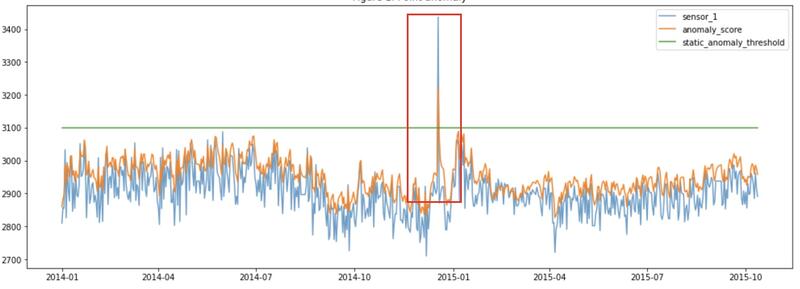Sitemap
A list of all the posts and pages found on the site. For you robots out there is an XML version available for digesting as well.
Pages
Posts
Future Blog Post
Published:
This post will show up by default. To disable scheduling of future posts, edit config.yml and set future: false.
Blog Post number 4
Published:
This is a sample blog post. Lorem ipsum I can’t remember the rest of lorem ipsum and don’t have an internet connection right now. Testing testing testing this blog post. Blog posts are cool.
Blog Post number 3
Published:
This is a sample blog post. Lorem ipsum I can’t remember the rest of lorem ipsum and don’t have an internet connection right now. Testing testing testing this blog post. Blog posts are cool.
Blog Post number 2
Published:
This is a sample blog post. Lorem ipsum I can’t remember the rest of lorem ipsum and don’t have an internet connection right now. Testing testing testing this blog post. Blog posts are cool.
Blog Post number 1
Published:
This is a sample blog post. Lorem ipsum I can’t remember the rest of lorem ipsum and don’t have an internet connection right now. Testing testing testing this blog post. Blog posts are cool.
portfolio
Resort Pricing Study – Data Wrangling
Our client is Big Mountain (a/k/a ‘the Client’, ‘the Company’), a Montana-based ski resort. Management at Big Mountain suspects it may not be maximizing its return on investment (ROI) relative to its peers in the market. Furthermore, Company insiders also lack a strong sense of which facilities matter most to visitors, particularly ones for which skiers are likely to pay more. To address these issues, we begin by wrangling the data provided by the client.

Resort Pricing Study – Exploratory Data Analysis
Having wrangled the data supplied by Big Mountain, we explore it more thoroughly.

Resort Pricing Study – Data Pre-processing and Modelling
Here, we’ll start building machine learning models. Before diving into modelling, however, we’ll begin by considering how useful the mean value is as a predictor. We never want to go to stakeholders with a machine learning model only to have the CEO point out that it performs worse than just guessing the average! Our first model is always a baseline performance comparitor for any subsequent model. Next, we’ll build up the process of efficiently creating robust models to compare to our baseline forecast.

Resort Pricing Study – Modelling
In this notebook, we now take our model for ski resort ticket price and leverage it to gain some insights into what price Big Mountain’s facilities might actually support, as well as explore the sensitivity of price changes to various resort parameters. Note, this relies on the implicit assumption that all other resorts are largely setting prices based on how much people value certain facilities, and comparable prices are set correctly.

Is There Anything On? A movie recommendation system.
In this section, we present a low-rank, matrix version of a collaborative movie recommendation system. It outperformed one we constructed with hierarchical clustering by recommending more than two times as many watchable films to the user.

That’s Unusual! A Gaussian Anomaly Detection System
We implemented a Gaussian anomaly detection system to identify network servers that may be malfunctioning. Several non-obvious servers were detected. Had we used the naive model in which all servers are assumed to be ok, or an alternate model in which all servers warrant inspection, our sys admin would have wasted considerable time.

Who’s Who in our Customer Database? A study in data mining and clustering.
Customer segmentation models using both hierarchical and k-means clustering were constructed. These methods illustrate classic cases of unsupervised learning. Though unsupervised methods do not yield a prediction, the insight gleaned from a data mining exploration of this type can be used to guide, for example, the implementation of targeted marketing campaigns. The study is written in R and depends largely on the tidyverse and caret packages.

publications
Paper Title Number 1
Published in Journal 1, 2009
This paper is about the number 1. The number 2 is left for future work.
Recommended citation: Your Name, You. (2009). "Paper Title Number 1." Journal 1. 1(1). http://academicpages.github.io/files/paper1.pdf
Paper Title Number 2
Published in Journal 1, 2010
This paper is about the number 2. The number 3 is left for future work.
Recommended citation: Your Name, You. (2010). "Paper Title Number 2." Journal 1. 1(2). http://academicpages.github.io/files/paper2.pdf
Paper Title Number 3
Published in Journal 1, 2015
This paper is about the number 3. The number 4 is left for future work.
Recommended citation: Your Name, You. (2015). "Paper Title Number 3." Journal 1. 1(3). http://academicpages.github.io/files/paper3.pdf
Paper Title Number 4
Published in GitHub Journal of Bugs, 2024
This paper is about fixing template issue #693.
Recommended citation: Your Name, You. (2024). "Paper Title Number 3." GitHub Journal of Bugs. 1(3). http://academicpages.github.io/files/paper3.pdf
talks
Talk 1 on Relevant Topic in Your Field
Published:
This is a description of your talk, which is a markdown files that can be all markdown-ified like any other post. Yay markdown!
Conference Proceeding talk 3 on Relevant Topic in Your Field
Published:
This is a description of your conference proceedings talk, note the different field in type. You can put anything in this field.
teaching
Teaching experience 1
Undergraduate course, University 1, Department, 2014
This is a description of a teaching experience. You can use markdown like any other post.
Teaching experience 2
Workshop, University 1, Department, 2015
This is a description of a teaching experience. You can use markdown like any other post.
